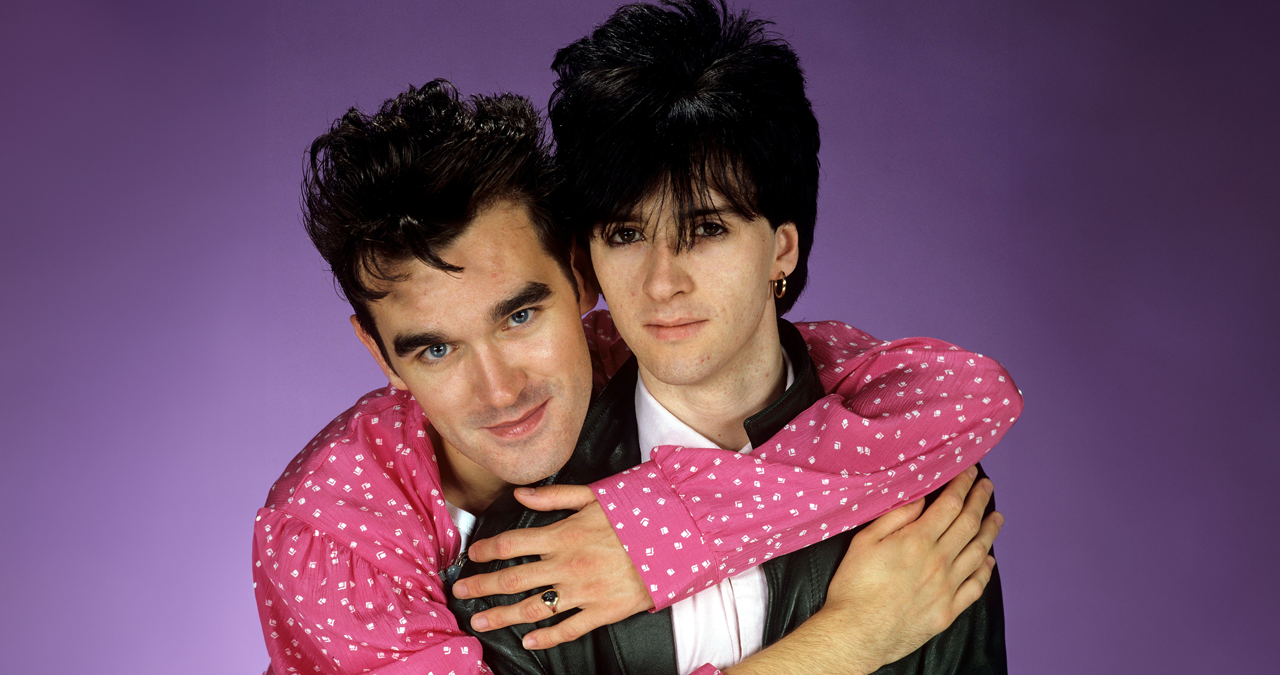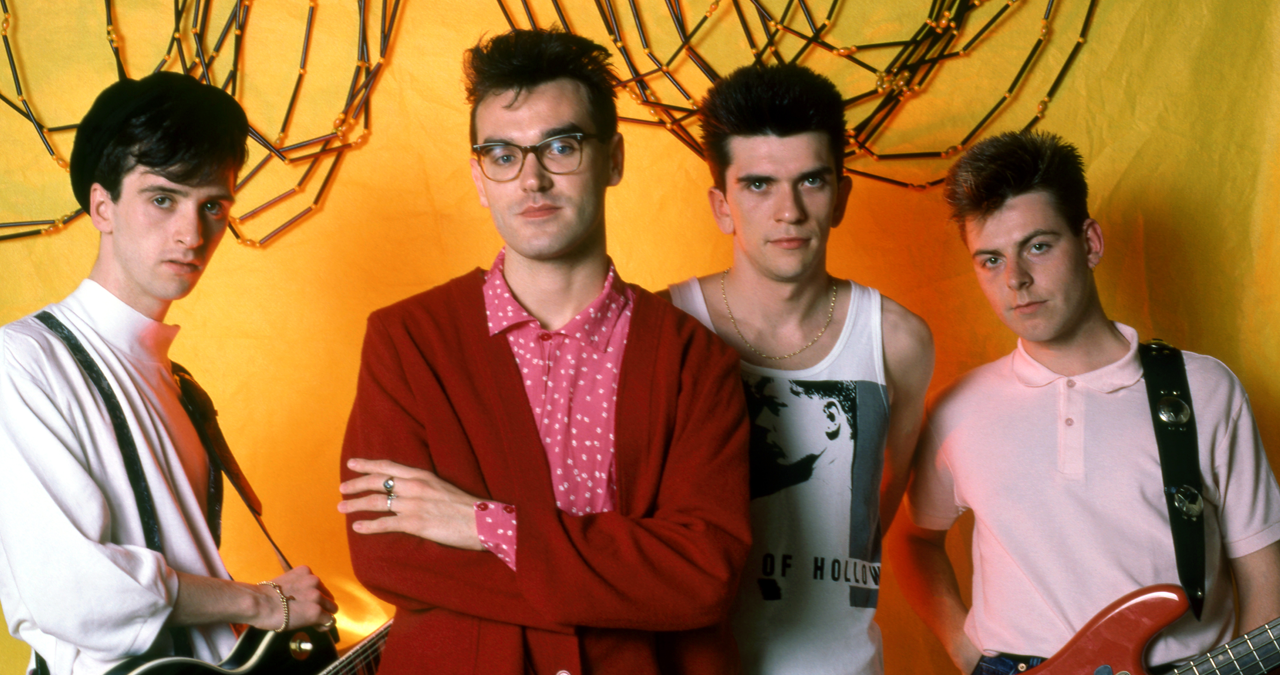“That was the last straw, really. I didn't form a group to perform Cilla Black songs”: How a frosty band meeting in a fish and chip restaurant signalled the end for the Smiths
The Smiths story came to a close shortly after completion of 1987 album Strangeways, Here We Come, and a tense exchange of words over fish and chips…

Despite the enormous impact they made on British indie, the Smiths’ lifespan as an active band (within the public consciousness, at least) barely made five years. From their self-titled 1984 debut up to their fourth and final record in 1987, Strangeways, Here We Come, the Smiths had managed to re-orient British rock. They established a poppier aesthetic driven in equal parts by melody and wit. Setting the foundations for Britpop in the decade that followed.
In Johnny Marr (then still, extraordinarily, a mere 23 years old) Britain had its own quintessential working class guitar hero. Marr’s intricate approach to the instrument served as a sonically lush riposte to the posed starkness of post-punk - and the increasingly bombastic excesses of American rock.
Of course, following the Smiths’ breakup, vocalist and lyricist Morrissey went on to have a storied - and often controversial - solo career. Meanwhile, Marr became something of a wandering six-string gunslinger for-hire, working with some of music's biggest names, before launching into his own creatively fruitful solo adventures.
Though the pair haven’t spoken in years, it’s often intriguing to imagine what might have happened had the Smiths managed to overcome their differences and carried on into the 1990s…

But, by the conclusion of album number four, it was clear that the division between the four men (Morrissey, Marr, bassist Andy Rourke and drummer Mike Joyce) had become nigh-on impossible to resolve.
It was an estrangement primarily caused by business matters.
A rotating roster of unsatisfactory managers had landed the immense pressure of having to handle the band’s affairs largely on Marr’s shoulders. These additional strains on the Smiths' chief musical lynchpin had caused Marr to become resentful towards the man most vocally critical about anyone external stepping into that role.
Unfortunately that man was also his songwriting partner. Marr and Morrissey were no longer seeing eye-to-eye.
With the most recent firing of Ken Friedman, the latest in this long line of these managers, in May of 1987 a desperately overworked Marr called a fateful band meeting.
Want all the hottest music and gear news, reviews, deals, features and more, direct to your inbox? Sign up here.
It was clear that the meet would need to be on neutral ground. So, in true Smiths fashion, Johnny invited the three other members to a good old British chippy…
Well, a chippy slightly posher than most.
As documented in his (exceptional) autobiography, Set the Boy Free, Marr summoned Rourke, Joyce and Morrissey to Geales fish and chip restaurant in Notting Hill
“I’d put the management situation aside for the moment, and thought that clearing the air would be a good thing for us all,” Marr recollected. “The band met in an upmarket fish-and-chip restaurant in Kensington. Andy and I sat on one side and Morrissey and Mike sat on the other.”

As the four men tucked in (we assume the famously vegetarian Morrissey had a tofu-based fish substitute) Marr struggled to persuade the group to agree to a creative re-invention of the band’s sound - and a bit of a reset of personal tensions.
The faces of Rourke, Joyce and, most of all, Morrissey, said it all.
“The band’s response was unenthusiastic and unfriendly,” Marr recalled. “Again, it looked like I was in a minority of one.”
Mike Joyce - now seemingly the spokesman of the rest of the band - informed Marr that the group had decided (without him) to head back into the studio to record new songs, even though there were no new songs in circulation at that point.
“I thought it was a bizarre suggestion,” Marr remembered. “We’d only just completed a new album [Strangeways, Here We Come] that wasn’t due out for months. I was about to go on holiday, and now I was being told to go back into the studio - and with no songs.”
Feeling tested, but still not ready to walk away from the band that was central to his life, the still remarkably young Marr reluctantly agreed to return to the studio.
“I loved the others and I wanted everything to be all right, but I was aware of a new dynamic that had developed in the band, and I felt like I was being made to submit.”
Setting up at Firehouse Studios with producer Grant Showbiz, the sullen foursome did manage to spawn a handful of new songs - but they were quite the weakest recordings the band had committed to tape so far (including a loathsome Cilla Black cover, Work Is a Four-Letter Word).
Johnny was eager to just get away from it all.
Being forced to record a Cilla Black cover was the straw that broke the camel’s back for Marr, telling Record Collector; “That was the last straw, really. I didn't form a group to perform Cilla Black songs. That was it, really. I made a decision that I was going to get away on holiday. The only place I could think of was [Los Angeles]. L.A. was the only place I knew where there'd be sunshine, so off I went. I never saw Morrissey again."
In his book Marr recalls that he was forced to make an official departure statement only when the press had heard a rumour of his exit.
Upon returning from his L.A jaunt, Marr received a call; “I got a call from the Smiths’ publicity agent Pat Bellis,” Marr recollected. “She told me that the press had somehow got hold of a rumour that I had left the band, and she wanted to know what I intended to do about it.”
Deciding to keep shtum and hoping the story would die a death, the then-lie was ran in several publications. Expecting support, or at least some communication, from the other band members, Marr was peeved when no-one reached out.
Finally, he felt fate had made the choice for him.
“I faced up to the inevitable and announced I was leaving the Smiths,” said Marr in his book.

Hearing of Marr's official exit, the remaining members of the Smiths counter-announced that they were to carry on, and would be seeking to replace the (utterly irreplaceable, we might add) Johnny Marr with another guitarist.
This was a heartbreaking development for Marr. “It was a difficult thing to hear. Within only a week of the story coming out. It was the final nail in the coffin. I couldn’t go back even if I wanted.”
But, the Smiths didn’t in fact carry on without Marr. Despite both Rourke and Joyce occasionally playing with Morrissey during his solo career - the Smiths were done.
“The split wasn’t just the end of a band; it was a break-up of very close friendships, mine and Morrissey’s in particular.”
As Johnny reflected to our sister magazine, Guitar Player, back in 1990; “I’m very proud of everything we did, musically, lyrically, and politically. It was a really great time, but only a fool doesn't know when it's time to stop.”

I'm Andy, the Music-Making Ed here at MusicRadar. My work explores both the inner-workings of how music is made, and frequently digs into the history and development of popular music.
Previously the editor of Computer Music, my career has included editing MusicTech magazine and website and writing about music-making and listening for titles such as NME, Classic Pop, Audio Media International, Guitar.com and Uncut.
When I'm not writing about music, I'm making it. I release tracks under the name ALP.
You must confirm your public display name before commenting
Please logout and then login again, you will then be prompted to enter your display name.
